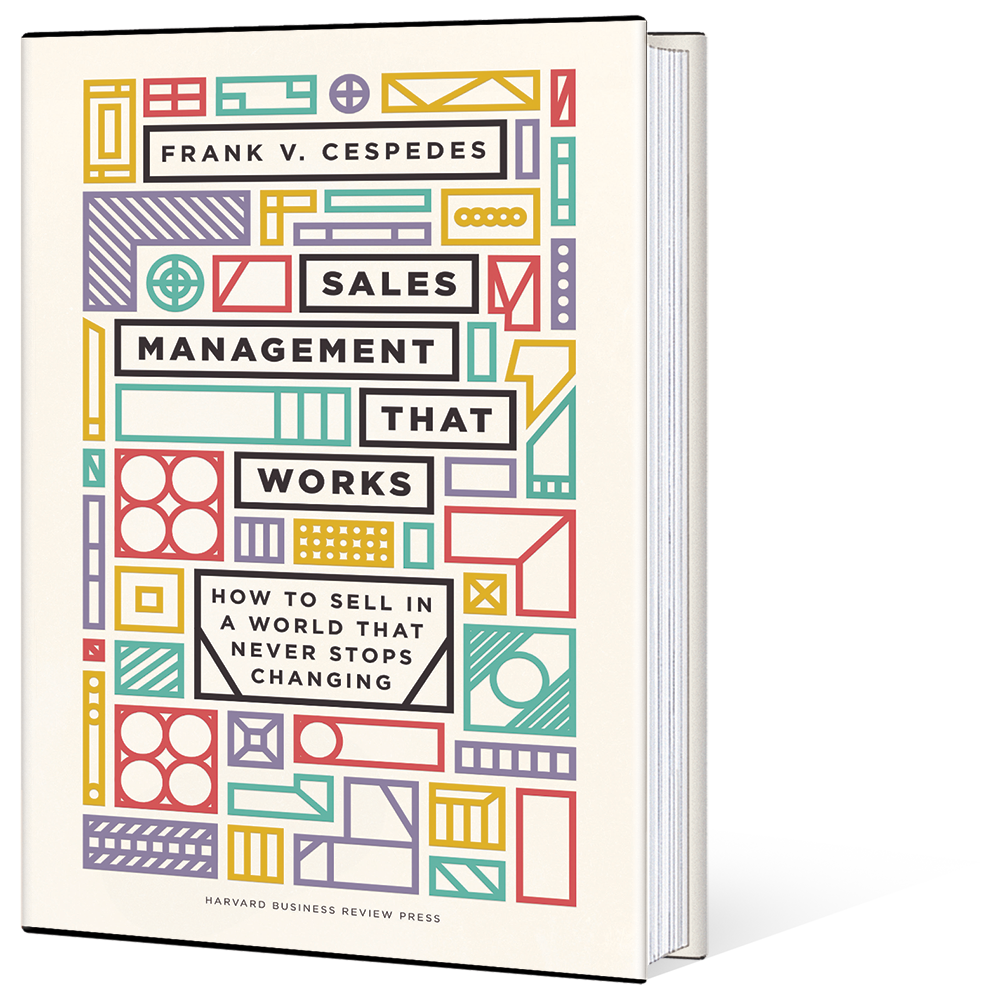This post originally appeared on Harvard Business Review.
It was just minutes after they greeted each other on the porch of the restored mansion that the sales manager and the VP of marketing of a heavy-machinery company found themselves embroiled in the real purpose of their lunch meeting: Hashing out the sales manager’s plan to make salespeople financially responsible for their travel, food, and entertainment expenses.
“You’re going to have a mutiny on your hands,” said Jo-Ann, the VP.
“I expect some resistance,” Peter replied. “But if I truly thought this was going to make the salespeople unhappy, I would not have proposed it. Once they see how it works, they’ll like it.”
“Wow. You are so out of touch,” Jo-Ann said.
(Editor’s note: This fictional Management Puzzle dramatizes a dilemma faced by leaders in real companies. Like HBR’s traditional case studies, HBR.org’s Management Puzzles are based on academic research into business problems. This story was inspired by the Harvard Business School case study “Olympia Machine Company, Inc.,” by Frank V. Cespedes and Benson P. Shapiro. Please contribute by offering insights, solutions, and stories from your own experience.)
They were soon ushered into the restaurant’s private dining room. As she seated herself in the carved chair that the waiter had pulled out, Jo-Ann looked perfectly at ease — unlike Peter.
“Forgot my white gloves,” he joked. Although he had lived in Raleigh for two decades, he had never set foot in this place. He had agreed to meet Jo-Ann here only because she had been assured they could be alone to discuss his plan.
“You really don’t like all this, do you?” she asked, indicating the white linen and gilt mirrors. “Or is it only when the company’s paying?”
“Especially when the company’s paying.”
“You were a salesman for years, though. Surely you took your customers out —”
“All the time. And I still do. But I know exactly how much money goes up in smoke in a place like this. I don’t think most of our salespeople have that kind of sense about costs. I’m trying to heighten their awareness.”
“But making them cover their own expenses?”
“We’ll give them a fixed amount, based on their territory and their past expenses, and we’ll let them keep what they don’t spend.”
“Give them less, you mean,” she said. “Less than they used to spend.”
“Correct. The assumption is that, under the current incentive system, they’re highly inefficient in their use of expense money, so we’ll give them less to work with than they’ve been getting reimbursed for.”
“I can’t believe the CEO actually likes this plan,” she said. “Our customer base is dispersed all over the place — that’s just how it is when you’re selling to specialty chemical manufacturers, as we are. Plus our sales cycles are long, and developing cross-functional relationships at customers is a key sales task. All this relationship building over vast territories takes a lot of traveling and a lot of wining and dining. Your plan could so easily make the salespeople penny-wise and pound-foolish.”
“The CEO doesn’t just like this plan, he loves it, Jo-Ann. Because it’s not just about pennies. In fact it’s not mainly about cost management at all — though that’s certainly important in these market conditions. My kind of expense approach can help the sales force develop their awareness and skills at P&L management, and that in turn might allow us in the future to peg incentives not only to volume but to profitability of sales. That’s something you know I’ve been arguing for, but we can’t just implement it overnight. We have to build toward it.”
“He told me yesterday he wants to implement your plan as soon as possible,” she said with a deep sigh. “There are rumors that something like this is being contemplated, and the salespeople are going nuts. He wants to put a stop to the rumor mill.”
“I agree with him: It should be implemented ASAP, and the rationale should be clearly and quickly communicated.”
“And what exactly would you communicate?”
“Jo-Ann, there are multiple issues with expenses under the current plan. First, there’s the squishiness factor. There’s no oversight — except me, of course, and I don’t want to have to confront every salesperson over every expense. Whenever I do their expense reports, I have to fight with my conscience the whole time, biting my lip about this expense and that expense. Tania Temple paid for the CEO of Shelston Chemicals and his whole entourage to spend the day at a NASCAR event. And Carmody pays top dollar for every hotel he stays in — you’d think he was the king of Persia. Stemberg’s bar tabs are out of sight.”
“I’ve heard you say yourself that salespeople should live in a style that reflects well upon them and the firm,” she said. “No one wants our salespeople to be seen driving beaters and staying in cheap motels.”
“That’s not the point. The point is that they see the expense account as an unlimited, no-cost resource for jacking up their sales numbers. If you gave me a big enough expense account, I could sell one of our pulverizing machines to the president of the United States. But I’d bankrupt the company.”
“Now why would the president of the United States need a pulverizing machine?”
“Oh, I could demonstrate plenty of uses. I could probably sell him two. But forget about that. Look at the cost situation. We pay straight salary plus expenses, so Tania gets $80,000 a year and puts in for $90,000 in expenses. True, she has global customers with plants all around the world, but still. That’s really high. And there’s no predictability. The year before, she put in for $50,000. Next year, it might be $100,000. How do we budget for that?”
“The need for expenses is highly variable,” Jo-Ann said. “Tania had to go all-out to get Shelston to buy those new grinding machines. Now that she’s made the sale, her territory is going to be a lot quieter. She’ll be spending most of the next year selling accessories and parts. Her expenses will be minimal.”
“We’ll take all that into account when we give them their expense budget each year.”
“Who’s ‘we’?”
“Me, mostly,” Peter admitted.
“We devote a huge amount of energy and a lot of money to keeping our sales force happy. As you well know, salespeople in our business are highly inclined to jump, because their relationships with customers are so portable. And it’s a cutthroat business environment out there.” Her voice took on an edge that sounded almost threatening. “I would not embark on this lightly if I were you.”
“I’ve heard that quite a few of the salespeople see the benefit in it.” He was aware that his voice lacked some of its earlier confidence.
“I don’t know who you’ve been listening to,” she said. “I think they’re all going to quit, Peter. All of them.”
What did Jo-Ann know that he didn’t?
Question: Should Peter go through with his plan to make the salespeople pay their own expenses?


